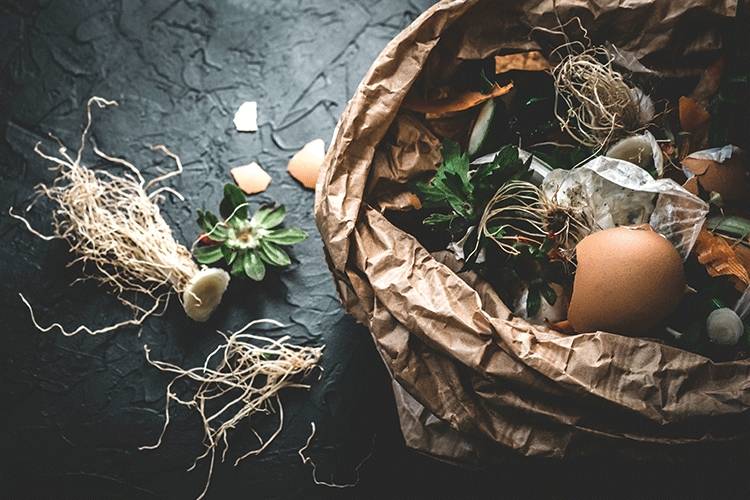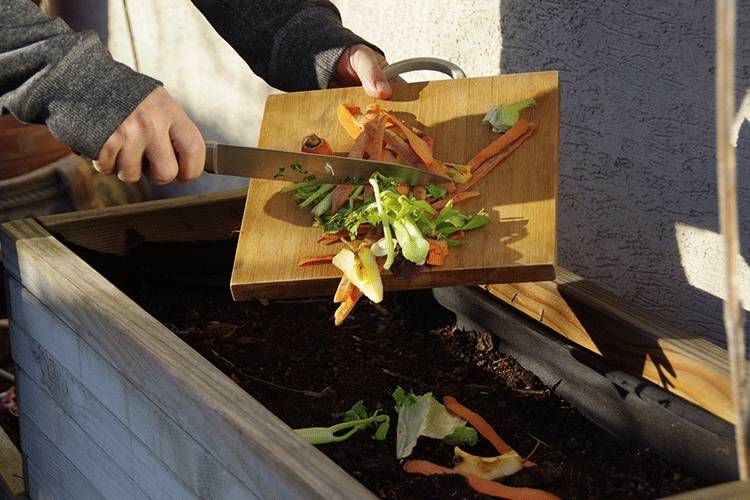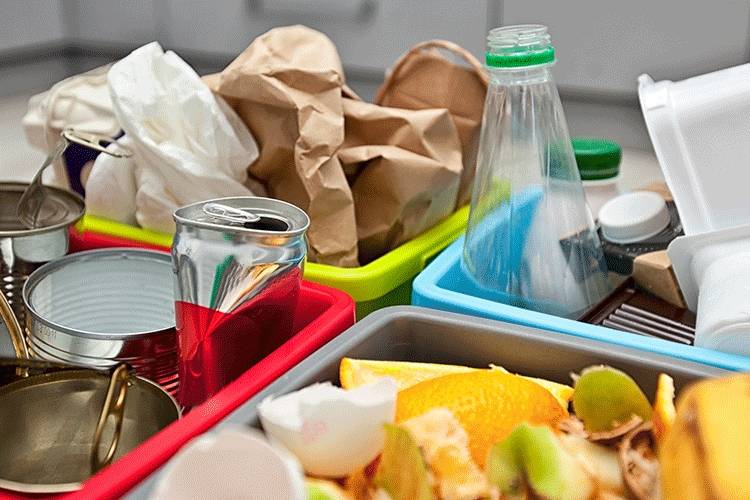How to reuse organic waste
Do you know which organic waste can be used and which can’t? Join us in discovering how to reuse organic waste to turn it into a raw material!
IT’S ECO, IT’S LOGICAL
Share

Spain faces the challenge of having to recycle 55% of municipal waste by 2025. The recycling of organic material is one of the main challenges in towns and villages, as its the type of rubbish that we generate the most of, but not the one that we most recycle. Spanish homes generate 22 million tonnes of rubbish each year, and half of that is from organic sources.
Knowing what constitutes organic waste is the first step in being able to recycle it well. It is all the waste from natural sources that can ‘spoil’. Some examples are: fruit or vegetable peelings, meal scraps, eggshells, bread, omelettes, coffee filters, tea bags, animal bedding, dairy products (without their packaging), bones, seeds, flowers, grass and fallen leaves. All of this type of waste should be disposed of in the brown container.
But what can we do at home to use the organic material? One thing is household compost. It is the transformation process of the organic material through the action of micro-organisms and it results in the creation of compost. By doing this, you will contribute to protecting the environment because you will be reusing organic waste, as well as producing less rubbish. You will also have a natural fertiliser, which means that you won’t be using a chemical product. You can use it in flower pots and, if you have a garden at home, it can also be used on the trees.

Ways to use organic and non-organic waste
Compost is a natural fertiliser and has many benefits: it helps to give structure to the soil, it boosts plant growth and reduces the amount of weeds.
Below, we show you how to make the most of organic waste:
- Prepare the waste: cut the waste into small pieces, as this will help it to decompose. You can use a plastic container with holes in it to allow ventilation, a compostable bag, a wooden box or a large metal container.
- Mix all the waste well. There needs to be a certain level of humidity, but not enough to cause drips. If you can see it dripping, add more dry waste. But if you can see that it is too dry, you can add some liquid. The mix should not give off bad odours. If it does, it is a sign that you are doing something wrong. It may be that the mix is too soggy, and this could be because you have only included domestic waste. This is why we recommend also adding plant waste.
- Cover the container, but don’t make it airtight because air needs to be able to get in.
- Ready to use compost: at the end of two months you will have your compost. Put it on top of the soil and water it.
And to reuse inorganic waste, firstly you need to know what it is. Inorganic waste are those waste materials that are not from a biological source. As opposed to organic waste, inorganic waste has been manufactured using industrial and artificial processes and, because of this, it takes much longer to biodegrade.

It includes glass, paper and cardboard, scrap metal, wrappings and packaging, plastics,,, Some practical examples are: cellophane packaging, plastic bags, clothing made from synthetic fibres, PVC containers (trays, bottles, etc.) batteries, Tetra Pak containers, glass bottles, glass jars, printer cartridges, broken cables and tyres.
You know that packaging is recycled in the yellow container, paper and cardboard in the blue one, and glass in the green one. But, what can you do to reduce your consumption of inorganic materials?:
- Buy fresh foods wholesale to reduce packaging.
- Reuse containers, such as glass jars, for storing legumes and rice.
- Go shopping with recycled bags, a trolley or a basket.
- Avoid buying products wrapped in plastic. You can use reusable mesh bags or compostable bags.
- Use wooden utensils when cooking.
- Preserve your food in glass storage containers instead of plastic ones.
- Avoid buying single use products.
- Buy, sell or donate second hand clothes.
Maintain and repair electrical goods to lengthen their life.






